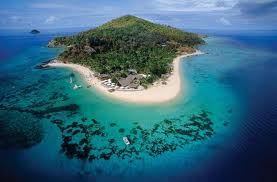
07 Jun EARTH MATTERS: WORLD OCEANS DAY IS JUNE 8

Qalito Island, Fiji
“Malama i ke kai, a malama ke kai ia oe.”
The translation of that centuries-old olelo noeau (Hawaiian proverb) is this: “Care for the ocean and the ocean will care for you.”
Hawaiians believe it is their cultural kuleana (responsibility) to protect the resource that provides food and so much more for their families. On Saturday, June 8, World Oceans Day, millions of people and environmental advocacy organizations will come together to show their appreciation for the world’s oceans and discuss what we can do protect a critical resource for all life on Earth.
The world’s oceans were the birthplace for all life on our planet. From the first creature that crawled onto the shores of Earth’s newly formed landmasses to the modern human, the world’s oceans have provided all life with food, knowledge, inspiration, and joy. Our rain, snow, and subsequent drinking water come from the world’s oceans via the process of seawater evaporation into Earth’s atmosphere. In some organisms, up to 90% of their body weight comes from water. Approximately 60% of the adult human body weight is water. All life on Earth owes its existence to the world’s oceans and every one of us carries the world’s oceans within us.
Personally, the world’s oceans have been some of my best friends and mentors. In the mid- 1970s on Qalito Island located in the Republic of Fiji, I learned the ways of a Fijian waterman. My friend Poisa, a native Fijian, shared his love of the ocean and taught me how to respect the ocean’s ecosystems. I learned to hunt for fish, relax in the presence of predators, and navigate the coral reefs surrounding our island. In addition, I learned the Fijian way of life, which taught me to live in harmony with a warm heart and a smile on my face. These invaluable lessons transferred later in life to enhance my appreciation and experiences with a multitude of ecosystems and beautiful island cultures in the Pacific Ocean, Atlantic Ocean, Indian Ocean, Caribbean Sea, Mediterranean Sea, and Aegean Sea.
Since my childhood, I have been disheartened to witness the impact of human activities upon the world’s oceans. Over-fishing has eliminated nearly 95% of the Ahi tuna population in the South Pacific and over 100 million sharks are killed every year for their fins just to make soup. As a result, the Ahi tuna and many species of sharks are being pushed to the tipping point of extinction. Making matters worse, acidification of the world’s ocean chemistry, due to the absorption of excess CO2 emitted into the atmosphere via human activities combined with nitrification from agricultural and urban runoff, has created dead zones in our ocean that are void of life.
On the bright side, organizations like the Ocean Conservancy, outreach education facilities like the Mokupapapa Discovery Center in Hilo, and federally established marine conservation areas like the Papahanaumokuakea Marine National Monument in Hawai’i have contributed to protecting the world’s oceans.
As descendants of the sea, you can help save the world’s oceans for future generations by donating your time and money to ocean conservation organizations. Besides feeling a “warm glow” from helping clean up a beach, you might also meet a new best friend.


Sorry, the comment form is closed at this time.